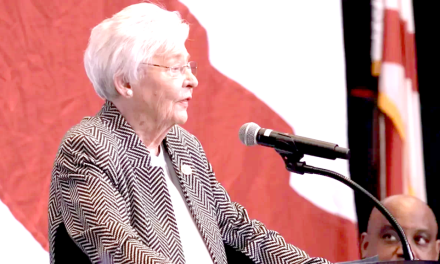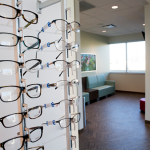By Tashi McQueen,
AFRO Political Writer,
tmcqueen@afro.com
Women’s History Month, coupled with Black History Month, easily creates a season for Black women to receive recognition and appreciation that is well overdue. From healthcare to education, technology and art, women are leading the way. And when it comes to the political arena, Maryland has several Black women who are making waves of change, one ripple at a time.
Maryland Sen. Mary L. Washington (D-43), Del. Robbyn Lewis (D-46) and newcomer Del. Jacqueline T. Addison (D-45) recently sat down with the AFRO to share their paths to success and some of the hardships they faced along the way.

Addison, an East Baltimore native, said she found her family to be the most prominent supporters in her run, encouraging her to run for delegate instead of staying in Baltimore city politics. Addison attended Dunbar high school and eventually worked in the Mayor’s Office of Neighborhoods.
She is the first elected official of her family. She spent much time in the community over the years, which she said contributed to her win.
“I had a lot of support in my election and I think that comes from when you’re very active and people get to know you,” said Addison. “I’ve always worked in my community – before I even thought about becoming a delegate– meeting people, talking to people and making sure that our district was well taken care of.”
It is clear. There is no one way to become a public servant.

Like Addison, Lewis said bettering the community the best way you can was a theme that ran deep in her family.
“I grew up in a household that was very focused on service [and] I was always interested in the medical field,” said Lewis, a Maryland Delegate since 2017.
Lewis was born and raised in the suburbs of Gary, Ind. She traveled the world for years following her passion for health and people, eventually bringing her to Johns Hopkins University in 1998.
“I never imagined I’d be an elected public official,” said Lewis.
A combination of the 2016 presidential election, when former President Trump won office, and her past commitments to herself to fight for what’s right led her to put her hat in the ring for Maryland Delegate.
When elected, Lewis became the first African-American woman ever to represent District 46, a predominantly White district when considering registered voters.

In 2010, Washington ran for Delegate and won. She served eight years in the House and was voted into the Senate in 2019.
“I thought I would be a policy analyst,” said Washington, who is the oldest of six children.
The delegate was influenced heavily by her parents, Wade Joseph Washington, a respiratory therapist, and Patricia Washington, a registered nurse.
“I’m the first elected Black LGBTQIA+ person in the senate,” said Washington. “I don’t see it as a deficit. It’s the importance of intersectionality. We have to consider multiple ways people can benefit and be reformed.”

Though the women had firm foundations, along the way, they each faced some challenges as Black women and minorities but overcame them.
“Our Democracy runs on campaigning, posters, mail campaigns,” said Lewis. “To raise the money, you have to ask around and It’s very difficult for non-white people to garner money. I’ll never raise the same money as a White man.”
“As a Black woman, it’s part of what we deal with,” Lewis continued. “When I arrived in Annapolis [as a delegate], I was surprised by the level of hate for Baltimore City from legislators representing the White parts of Maryland. The City is the punching bag of Maryland. Infused with racial animosity and hatred. I’ve never heard anything like this in my life.”
Addison, Lewis and Washington also shared the history they hope to make.

“I want to make my constituents proud, that’s it, they sent me here to serve and I want to serve the best I can,” said Del. Addison.
Lewis finds it important to mentor Black women and ensure the City has a place in state politics.
“I don’t want to be the last Black Woman to represent my district. [I] hope to hire young women and train and lift them to be leaders,” said Lewis. “I want to continue to mentor and work to strengthen the City.”
Washington said she intends to focus more on making sure women have a better standing in the economy.
“I want to focus more on the economic things that impact women, reproductive justice is very important for women and girls,” said Washington. “Right now we’re not there.”
Tashi McQueen is a Report For America Corps Member.
Similar articles:
–
2-views-on-leadership-traits-and-competencies-and-how-they-intersect-with-gender
62000US24046-state-legislative-district-46-md
The post Women of color shine in Legislative Black Caucus of Maryland appeared first on AFRO American Newspapers .











